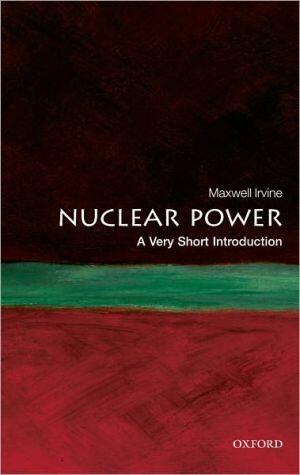
Nuclear Power: A Very Short Introduction
によって
Maxwell Irvine
まだ評価がありません
Science & Technology
History
形式
ペーパーバック
ページ数
144
言語
英語
公開されました
Jul 1, 2011
出版社
Oxford University Press
版
1
ISBN-10
0199584974
ISBN-13
9780199584970
説明
As global energy demands escalate, the search for sustainable and eco-friendly alternatives has never been more urgent. This exploration delves into the intricate realm of nuclear power, an energy source often surrounded by controversy and debate. With an analysis of its potential to meet the world’s hunger for clean energy, the narrative invites readers to reconsider their preconceived notions of nuclear technology amidst the backdrop of climate change.
Maxwell Irvine deftly navigates through the history, technology, and safety concerns associated with nuclear energy, shedding light on its role in the contemporary energy landscape. He discusses the advancements in reactor design and safety protocols that have emerged since the initial onset of nuclear power, underscoring its potential to contribute significantly to reducing carbon emissions.
In addition to the technical aspects, Irvine prompts a broader conversation about the political and social complexities of nuclear power. By examining case studies and current events, he offers insights into how societies can balance the undeniable benefits of nuclear energy with the fears and risks that accompany it, ultimately urging readers to consider the future of energy consumption in a warming world.
Maxwell Irvine deftly navigates through the history, technology, and safety concerns associated with nuclear energy, shedding light on its role in the contemporary energy landscape. He discusses the advancements in reactor design and safety protocols that have emerged since the initial onset of nuclear power, underscoring its potential to contribute significantly to reducing carbon emissions.
In addition to the technical aspects, Irvine prompts a broader conversation about the political and social complexities of nuclear power. By examining case studies and current events, he offers insights into how societies can balance the undeniable benefits of nuclear energy with the fears and risks that accompany it, ultimately urging readers to consider the future of energy consumption in a warming world.